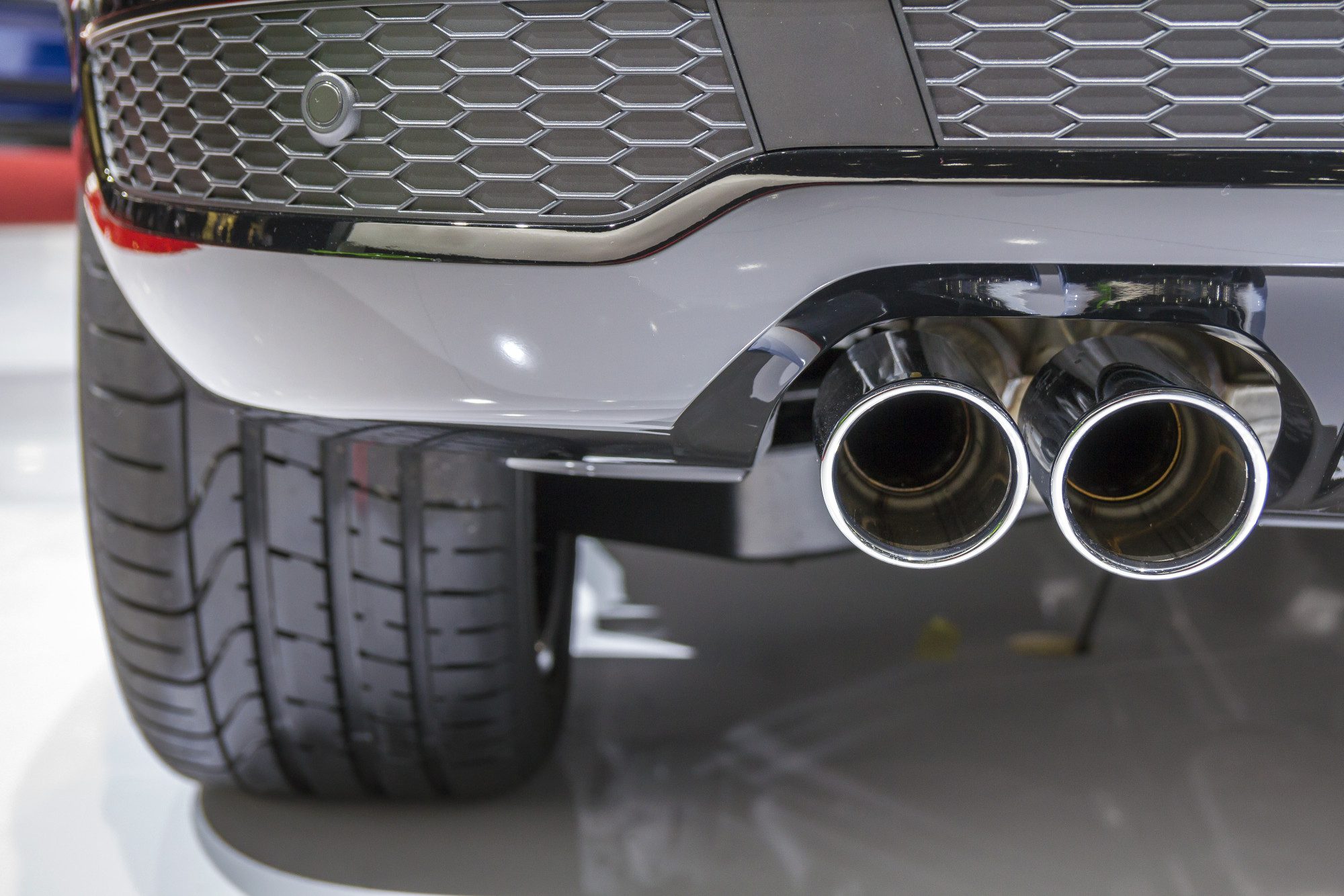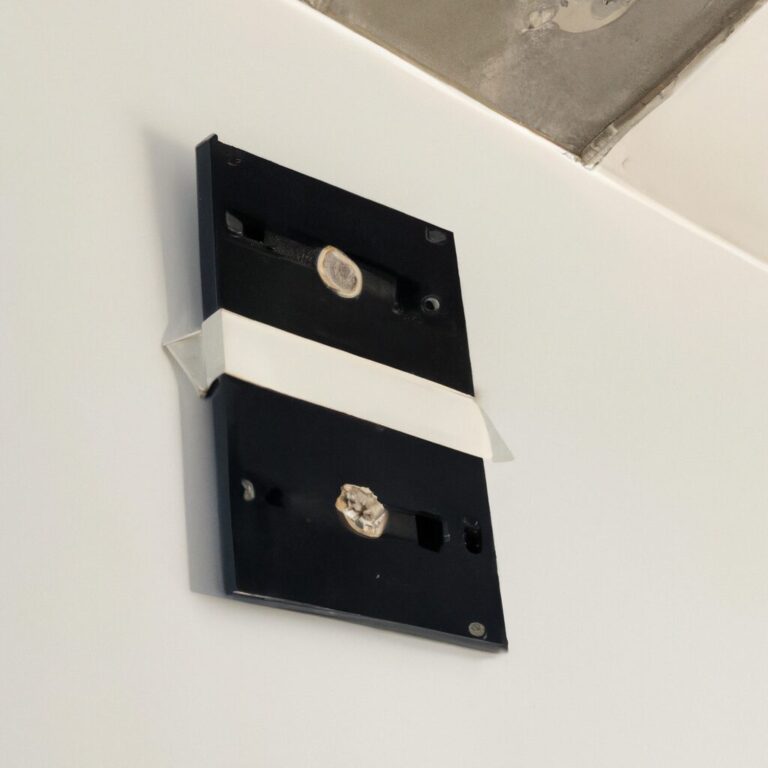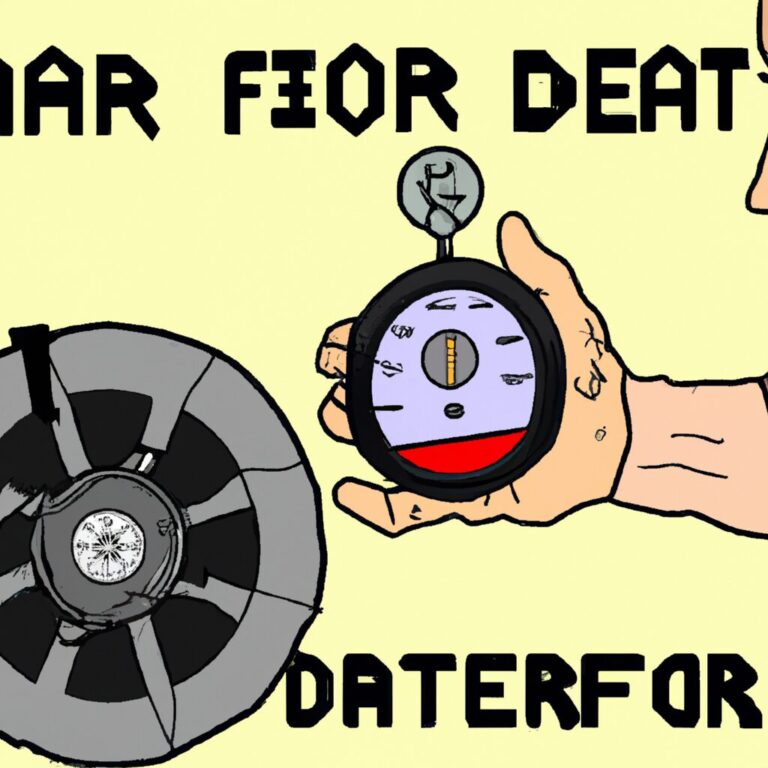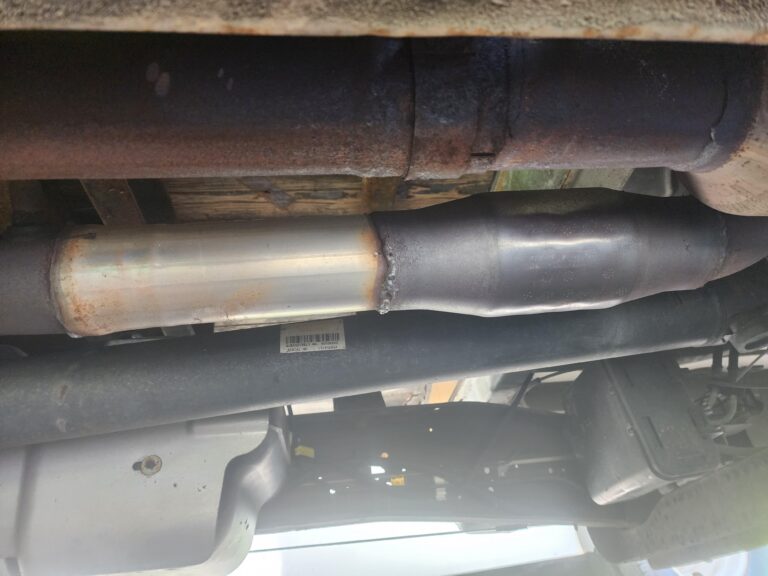how to tell if your muffler is bad

Introduction
Car maintenance is an essential part of owning a vehicle, and one component that should not be overlooked is the muffler. A bad muffler can lead to various issues and can affect the performance and safety of your car. In this blog post, we will discuss the importance of a functioning muffler and the warning signs that indicate a potential problem.
Importance of a Functioning Muffler
The muffler plays a crucial role in reducing the noise produced by the engine. Engines generate a significant amount of noise due to the combustion and pulsations occurring within. Without a properly functioning muffler, this noise would be amplified, leading to a loud and unpleasant driving experience. Additionally, a muffler helps to improve the overall efficiency of your vehicle by optimizing the exhaust system.
Signs of a Bad Muffler
It’s important to be aware of the warning signs that indicate a bad muffler. Identifying these signs early on can prevent further damage and ensure your safety on the road. Here are 10 common signs to look out for:
1. Loud Noises: The most obvious indication of a bad muffler is loud and unusual noises coming from the vehicle. If you hear a sudden roaring sound when accelerating, it could be a sign that your muffler is starting to fail. Cracks or holes in the muffler are often the cause of these noises.
2. Increased Smoke: Excessive smoke coming from the muffler is another warning sign. This could indicate an issue with the exhaust system, such as a clogged catalytic converter or a leaking muffler. It is essential to address this issue promptly to avoid further damage to your vehicle.
3. Reduced Fuel Efficiency: A bad muffler can also impact the fuel efficiency of your car. If you notice a sudden decrease in mileage, it could be due to an inefficient exhaust system caused by a faulty muffler. Getting it checked and replaced if necessary can help improve your car’s overall fuel economy.
4. Vibrations: Experiencing vibrations while driving can be attributed to a failing muffler. Faulty mufflers can cause the entire exhaust system to become unbalanced, leading to vibrations that can be felt throughout the vehicle. These vibrations can be a sign of more severe issues and should be addressed promptly.
5. Foul Odor: A rotten egg or sulfur-like smell coming from the exhaust can indicate a problem with the muffler. The presence of a strong odor could be a sign of a failed catalytic converter, which is often connected to the muffler.
6. Rust and Corrosion: Mufflers are exposed to various elements on the road, and over time, they can develop rust and corrosion. If you notice visible signs of rust or corrosion on your muffler, it’s a clear indicator that it needs to be replaced.
7. Poor Engine Performance: A failing muffler can also impact the performance of your engine. It can lead to reduced power output, sluggish acceleration, and overall poor engine performance. Addressing the muffler issue can help restore your car’s performance.
8. Engine Misfires: If you experience engine misfires or a rough idle, it could be a result of a faulty muffler. A bad muffler can disrupt the proper airflow in the exhaust system, causing these issues.
9. Increased Exhaust Noise: Along with the loud noises mentioned earlier, a bad muffler can also result in an overall increase in exhaust noise. This noise can be particularly noticeable during acceleration or when revving the engine.
10. Failed Emissions Test: A malfunctioning muffler can cause your vehicle to fail emissions tests. If you notice that your car is not passing the emissions test, it is likely due to a problem with the muffler or the exhaust system.
In conclusion, a bad muffler can lead to various issues, including increased noise, reduced fuel efficiency, and poor engine performance. It is essential to pay attention to the warning signs mentioned above and take prompt action to address any problems with your muffler. Regular maintenance and inspections can help ensure that your muffler is in good working condition, enhancing your driving experience and prolonging the life of your vehicle.
Decreased Fuel Economy
Unexpected Increase in Fuel Consumption
One of the common symptoms of a bad muffler is decreased fuel efficiency. When the muffler or exhaust system is damaged or faulty, it can lead to increased fuel consumption. This happens because a restriction in the muffler or exhaust system forces the engine to work harder to push past it, resulting in the engine burning more fuel than necessary.
Impact of a Bad Muffler on Fuel Efficiency
A bad muffler can have a significant impact on the fuel efficiency of a vehicle. If there is a hole before or in the catalytic converter, it can allow oxygen to enter the exhaust system and affect its internal pressure. This can disrupt the exhaust flow and lead to a decrease in fuel efficiency.
Furthermore, backfiring or other engine issues can occur due to excessive back pressure or insufficient back pressure caused by a bad muffler. This can further decrease fuel efficiency and lead to additional engine problems.
Replacing a bad muffler with a quality one can improve the efficiency of smaller vehicles dramatically. In some cases, it can result in an improvement of up to 2 mpg (miles per gallon). This improvement in fuel economy can help offset the cost of a new exhaust system over time.
It is important to note that a bad muffler not only affects fuel economy but also the overall performance of the vehicle. Damaged or faulty mufflers can lead to increased noise levels, rattling, vibrations, and fumes from the exhaust, impacting the driving experience.
In conclusion, a bad muffler can have a detrimental effect on fuel efficiency. It can cause increased fuel consumption and other engine issues, leading to decreased overall performance. Replacing a bad muffler with a quality one can not only improve fuel economy but also reduce noise levels and enhance the driving experience. Therefore, it is essential to address any symptoms of a bad muffler promptly to ensure the safe and efficient operation of your vehicle.
Increased Noise Levels
Identification of Unusual Noises
One of the first signs that you may have a bad muffler is an increase in noise levels coming from your vehicle. If you notice that your vehicle is making loud or strange noises, it is essential to pay attention to the specific sounds and identify where they are coming from. Unusual noises may include roaring, rattling, hissing, or banging sounds.
Connection between Noise and Muffler Issues
The muffler plays a crucial role in reducing the noise produced by the exhaust system. It is designed to dampen the sound waves and direct them out of the vehicle in a quieter manner. When the muffler is damaged or faulty, it can no longer effectively muffle the noise, resulting in increased noise levels.
Loud or strange noises can indicate various muffler problems. For example, a damaged muffler may have a hole or a leak, causing the exhaust gases to escape without being properly dampened. This can result in a roaring or rumbling noise. Rattling or vibrating noises, on the other hand, may indicate loose or broken internal components within the muffler.
Ignoring increased noise levels can lead to further damage to your vehicle’s exhaust system and potentially affect other components as well. Additionally, excessive noise can be a source of annoyance and discomfort while driving. Therefore, it is crucial to address any unusual noises coming from your vehicle’s exhaust system promptly to prevent further complications.
By replacing a bad muffler with a quality one, you can restore the proper sound-dampening function of your exhaust system. This will help reduce the noise levels and restore a quieter driving experience. It is recommended to consult a professional mechanic who can diagnose the specific issue with your muffler and advise on the appropriate replacement.
In conclusion, increased noise levels from your vehicle’s exhaust system can be a clear indication of a bad muffler. Unusual noises such as roaring, rattling, hissing, or banging sounds should not be ignored and should be addressed promptly. A damaged or faulty muffler can lead to increased noise levels and potentially affect the overall performance of your vehicle. Replacing a bad muffler with a quality one can restore the proper sound-dampening function and provide a quieter driving experience.
Impaired Acceleration
Noticing a Decrease in Acceleration Power
One of the warning signs of a bad muffler is limited acceleration. When you press on the acceleration pedal, you expect a smooth and quick boost in speed. However, if you notice that your car is not accelerating as easily as it used to, it could indicate a problem with your exhaust system, and specifically, your muffler.
A damaged or faulty muffler can cause a restriction in the exhaust flow, resulting in reduced power and limited acceleration. This can be attributed to a possible leak or blockage in the exhaust system, affecting the overall performance of the engine.
Role of Muffler in Acceleration Performance
The muffler plays a crucial role in the acceleration performance of a vehicle. It is responsible for reducing noise and controlling the emissions produced by the engine. Any disruption or malfunction in the muffler can lead to compromised acceleration power.
When the muffler is damaged, it can create a back pressure in the exhaust system, making it harder for exhaust gases to escape. This can result in reduced airflow and increased resistance, leading to limited acceleration capabilities.
Additionally, a leaking muffler can also affect the air-to-fuel ratio in the engine, causing an imbalance and further impacting acceleration. This can be observed through a decrease in the overall power and responsiveness of the vehicle.
It is important to address any issues with the muffler promptly to prevent further damage to the exhaust system and engine. Getting your muffler checked by a professional mechanic can help identify any leaks, blockages, or other potential problems that may be affecting your acceleration.
In conclusion, impaired acceleration can be a symptom of a bad muffler. A damaged or faulty muffler can restrict exhaust flow, resulting in limited power and reduced acceleration. The muffler’s role in maintaining a proper air-to-fuel ratio is crucial for optimal acceleration performance. Therefore, it is important to address any signs of a bad muffler and have it inspected and repaired by a qualified professional to ensure the smooth and efficient operation of your vehicle.
Persistent Rattling Sounds
Recognizing Rattling Noises from the Muffler
One common warning sign of a bad muffler is persistent rattling sounds coming from the underside of the car. This rattling noise is usually caused by a muffler that is hanging lower than normal or not securely attached. It is important to identify and address this issue promptly, as the rattling sound can not only be annoying but also potentially dangerous if left unattended.
The rattling sound from the muffler can be easily noticeable, especially when driving on rough roads or encountering bumps. If you hear a consistent rattling noise that seems to be coming from the rear of your vehicle, it is likely related to a problem with your muffler.
Negative Effects of Rattling Sounds on Vehicle Functioning
Apart from being a nuisance, persistent rattling sounds from the muffler can have negative effects on the overall functioning of your vehicle. Ignoring this warning sign can lead to various consequences, including:
1. Damage to the exhaust system: If the muffler is not securely attached or if it has come loose, the constant rattling can cause additional stress and strain on other parts of the exhaust system. This can result in damage to pipes, connectors, or even the catalytic converter, leading to costly repairs.
2. Reduced performance: A loose or damaged muffler can disrupt the proper flow of exhaust gases, affecting the overall performance of the engine. This can result in decreased fuel efficiency, restricted acceleration, and a general decrease in the vehicle’s power.
3. Safety hazards: If the rattling sound is due to a severely damaged or broken muffler, there is a risk of it completely detaching from the car. This can create a hazard on the road, both for you and other drivers, as well as potentially damaging other parts of your vehicle.
It is crucial to address any persistent rattling sounds from the muffler as soon as possible. Taking your car to a trusted mechanic or muffler shop for inspection and repairs can help diagnose the issue and prevent further damage to your vehicle.
In conclusion, persistent rattling sounds from the muffler are a clear indication of a problem that needs attention. Ignoring this warning sign can lead to additional damage to the exhaust system and negatively impact the vehicle’s performance and safety. If you notice any rattling noises, it is important to have your muffler inspected and repaired by a professional to ensure the proper functioning of your vehicle.
Excessive Smoke Emission
Observing Unusual Smoke from the Muffler
Another warning sign of a potential problem with your truck’s exhaust system is the presence of excessive smoke emissions from the muffler. During normal operation, the exhaust smoke should be clear or a very light blue color. However, if you notice smoke that is white, blue, black, or grey, it could indicate an issue with the exhaust system.
White smoke is particularly concerning as it typically indicates that coolant is entering the combustion chamber. This could be a sign of a blown head gasket or a cracked engine block, both of which require immediate attention and repair. Blue smoke, on the other hand, may suggest that engine oil is being burned, possibly due to worn piston rings or valve seals. Black smoke can indicate a rich fuel mixture or a problem with the fuel injectors, while grey smoke can be a sign of an oil leak.
Possible Causes and Dangers of Excessive Smoke
Excessive smoke emissions from the muffler can be caused by various factors, including a clogged selective catalytic reduction (SCR) system, a damaged exhaust manifold, or a cracked exhaust pipe. These issues can lead to an imbalance in the fuel-air mixture and inefficient combustion, resulting in excessive smoke being emitted from the exhaust.
Aside from being a visual nuisance, excessive smoke can also indicate more severe problems with the engine or exhaust system. It is important to address this issue promptly to prevent further damage and potential safety hazards. For example, a malfunctioning SCR system can lead to increased emissions of harmful pollutants, which can negatively impact the environment and potentially result in regulatory violations. Additionally, a damaged exhaust manifold or cracked exhaust pipe can affect the performance and efficiency of the engine, leading to decreased fuel economy and power.
To ensure the proper functioning and safety of your truck, it is advisable to have a certified mechanic inspect and diagnose any unusual smoke emissions from the muffler. They will be able to identify the root cause of the issue and recommend the necessary repairs or replacements. Prompt action can help prevent further damage and potential costly repairs in the future.
In conclusion, excessive smoke emission from the muffler is a warning sign of a potential problem with the exhaust system. Unusual-colored smoke, such as white, blue, black, or grey, can indicate various issues that require attention and repair. It is crucial to address these problems promptly to prevent further damage, ensure compliance with environmental regulations, and maintain the performance and efficiency of your truck. Seeking the assistance of a certified mechanic is recommended for proper diagnosis and resolution of the issue.
Physical Appearance of the Muffler
Visual Signs of Muffler Damage or Disintegration
In addition to observing excessive smoke emissions from the muffler, it is also important to pay attention to the physical appearance of the muffler itself. Regular visual inspections can help identify any signs of damage or disintegration that may indicate a problem.
During your monthly inspection, take a close look underneath your car and examine the muffler for any of the following signs:
1. Rust: Rust can corrode the metal surface of the muffler, weakening its structural integrity. A heavily rusted muffler may be more prone to leaks or even breakage.
2. Dents: Dents on the muffler can occur due to road debris or improper handling. These dents can affect the airflow and disrupt the proper functioning of the exhaust system.
3. Holes: Holes in the muffler can result from rust or physical damage. They can cause disruptions in the exhaust flow and lead to increased noise levels.
4. Other signs of wear: Pay attention to any other visible signs of wear, such as cracks, loose connections, or detached parts. These issues may compromise the effectiveness of the muffler and the overall performance of the exhaust system.
Implications of a Damaged Muffler
A damaged muffler can have several implications, both in terms of vehicle performance and safety.
1. Decreased fuel efficiency: A damaged muffler can disrupt the proper airflow in the exhaust system, leading to decreased fuel efficiency. This can result in more frequent trips to the gas station and increased fuel costs.
2. Noise pollution: Mufflers are designed to reduce exhaust noise. However, a damaged muffler may not be effective in muffling the noise, resulting in a louder vehicle. This can be a nuisance to you and those around you.
3. Exhaust leaks: Holes or cracks in the muffler can cause exhaust leaks. These leaks can release harmful gases, such as carbon monoxide, into the cabin of the vehicle. Carbon monoxide is a colorless and odorless gas that can be extremely dangerous if inhaled in high concentrations.
4. Environmental impact: A malfunctioning muffler can lead to increased emissions of pollutants, contributing to air pollution. This can have negative effects on the environment and may also result in regulatory violations.
If you notice any visual signs of damage or disintegration on your muffler, it is recommended to have it inspected and repaired by a certified mechanic. They will be able to assess the extent of the damage and recommend the necessary repairs or replacements to ensure the proper functioning of the exhaust system.
In conclusion, regularly inspecting the physical appearance of the muffler is crucial in identifying potential problems. Signs of rust, dents, holes, or other wear can indicate a damaged muffler. Such damage can lead to decreased fuel efficiency, increased noise pollution, exhaust leaks, and environmental impact. Seeking professional assistance is vital to address the issue promptly and ensure the safety and performance of your vehicle.
Unpleasant Odors
Detecting Foul Smells from the Vehicle’s Exhaust
Another indication that you may have a bad muffler is the presence of unpleasant odors coming from your vehicle’s exhaust. While it is normal for your exhaust to have a mild, musty smell, a significantly foul smell that is noticeable inside and outside the vehicle is a cause for concern.
Understanding the Connection to Muffler Issues
The muffler plays a crucial role in filtering exhaust gases and harmful fumes out of your car. If there is a leak or damage in the muffler, it can cause these fumes to become trapped within the vehicle, leading to the foul odor. Inhaling these fumes can be hazardous to your health and may even be fatal. Additionally, if these fumes are not properly filtered and released into the environment, they can contribute to air pollution.
It is important to address any foul smells coming from your vehicle’s exhaust immediately. Ignoring this symptom can lead to further damage to your muffler and potentially more expensive repairs in the future. It is recommended to have a professional mechanic inspect your muffler to determine the cause of the odor and perform any necessary repairs or replacements.
Possible Causes and Dangers of Unpleasant Odors
The foul smell emitted from the exhaust can be caused by various factors, including a damaged muffler, exhaust leaks, or a malfunctioning catalytic converter. These issues can result in the release of toxic gases and pollutants, which can be harmful to both human health and the environment.
Inhaling these toxic fumes can cause respiratory problems, headaches, dizziness, and nausea. For individuals with pre-existing respiratory conditions or compromised immune systems, exposure to these fumes can be even more dangerous. Additionally, the release of pollutants into the environment contributes to air pollution, which can harm ecosystems and contribute to climate change.
Addressing the issue promptly can prevent further damage to your muffler and ensure the proper functioning of your exhaust system. A professional mechanic will be able to diagnose the cause of the foul odor and recommend the necessary repairs or replacements. It is crucial to prioritize your safety and the well-being of the environment by addressing any unpleasant odors coming from your vehicle’s exhaust.
In conclusion, if you detect foul smells coming from your vehicle’s exhaust, it could be a sign of a bad muffler. The muffler’s function is to filter out harmful fumes, and a leak or damage can cause these fumes to become trapped, resulting in an unpleasant odor. Ignoring this symptom can lead to health hazards and environmental pollution. Seeking the assistance of a professional mechanic is essential to diagnose and resolve the issue promptly. Remember to prioritize your safety and the well-being of the environment by addressing any unpleasant odors associated with your vehicle’s exhaust.
Conclusion
Importance of Promptly Addressing Muffler Problems
It is crucial to regularly inspect your vehicle’s muffler and address any issues promptly. Ignoring problems with your muffler can have serious consequences for both your car’s performance and your wallet. Unresolved muffler issues can lead to reduced car efficiency, major engine problems, and unexpected high auto repair bills. By taking the time to inspect your muffler and address any signs of damage or malfunction, you can prevent these issues from escalating and ensure that your car remains in optimal condition.
Seeking Professional Assistance for Muffler Replacement or Repair
If you notice any signs that your muffler needs to be replaced, it is imperative to take your vehicle to a trusted mechanic specializing in your specific make and model. They will be able to accurately diagnose the problem and provide effective and affordable solutions. Whether you own a BMQ, Audi, Volvo, Honda, or Cadillac, choosing a mechanic who is familiar with your vehicle can ensure that you receive the best service and results.
A professional mechanic will not only replace your muffler if necessary but also inspect the entire exhaust system to identify any other potential issues. They have the knowledge, experience, and tools required to perform the repairs or replacements accurately and efficiently. By entrusting your muffler replacement or repair to a professional, you can have the peace of mind knowing that the job will be done right and that your car will be back to its optimal performance.
In conclusion, regularly inspecting your muffler and promptly addressing any signs of damage or malfunction is crucial for your car’s efficiency and longevity. Unresolved muffler issues can lead to significant engine problems and expensive auto repairs. By seeking professional assistance for muffler replacement or repair, you can ensure that the job is done properly and that your vehicle remains in top condition. Prioritizing the care of your muffler will not only benefit your car’s performance, but also your own safety and the environment, as a well-functioning muffler prevents the release of harmful fumes and pollutants.




